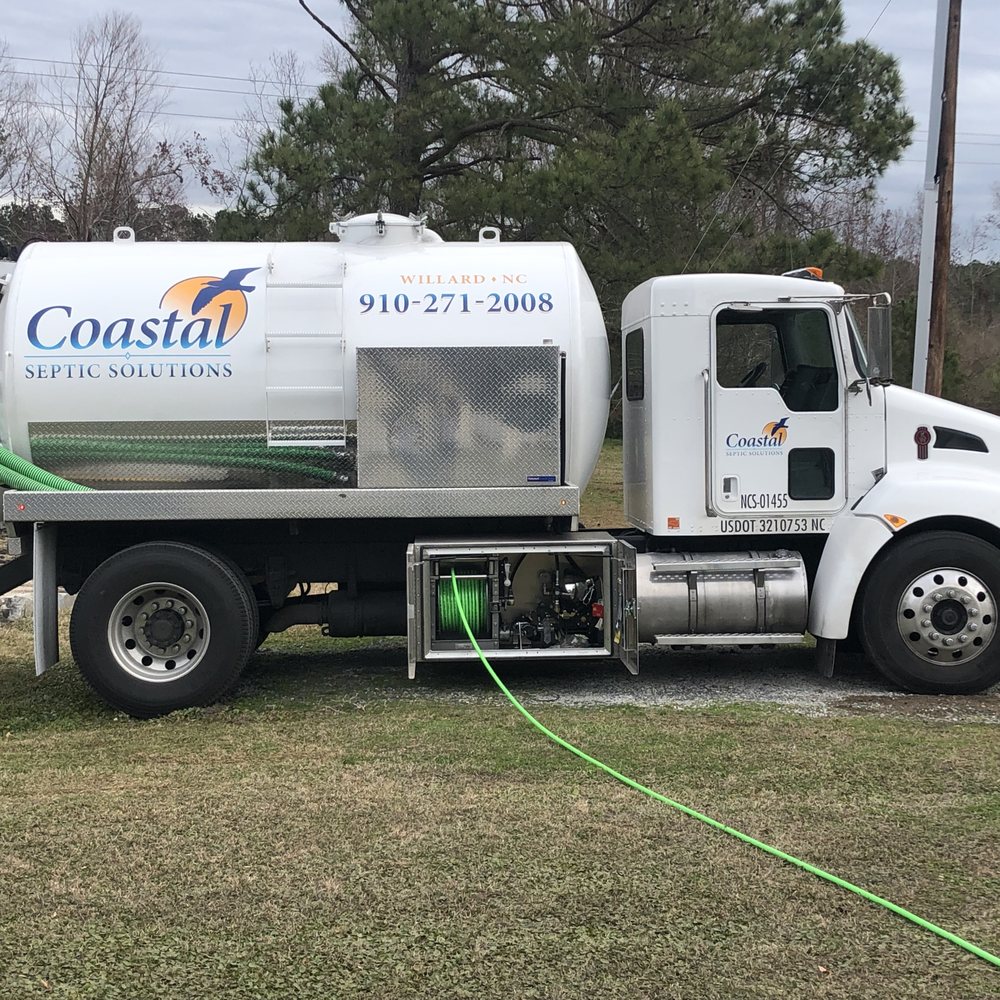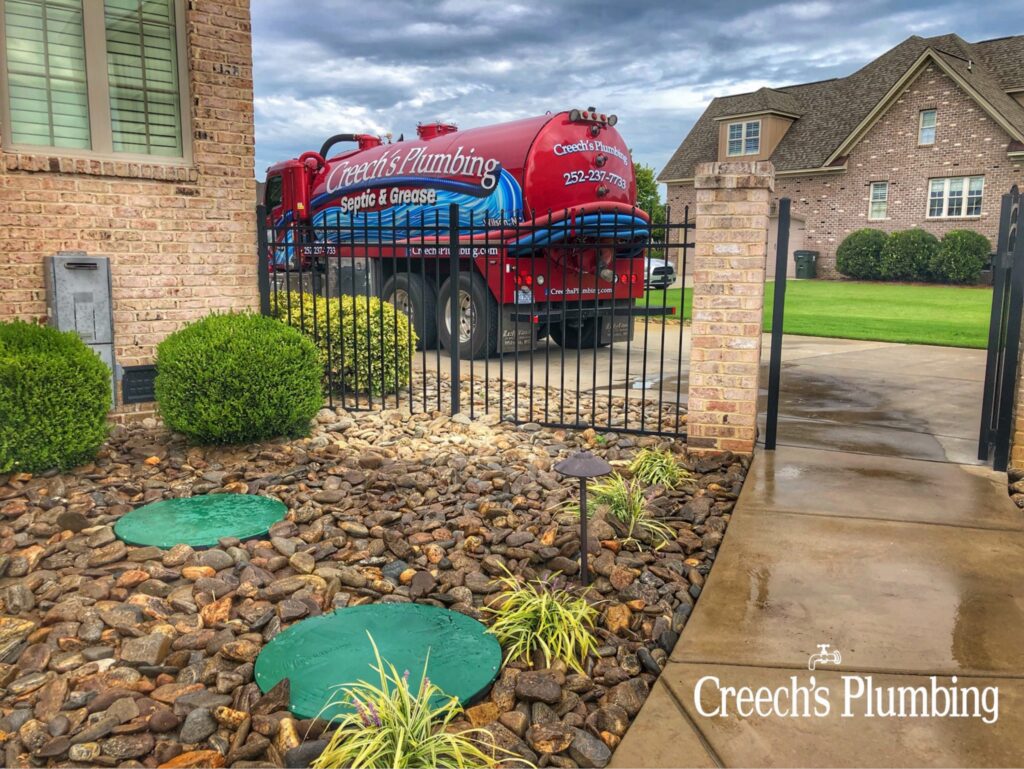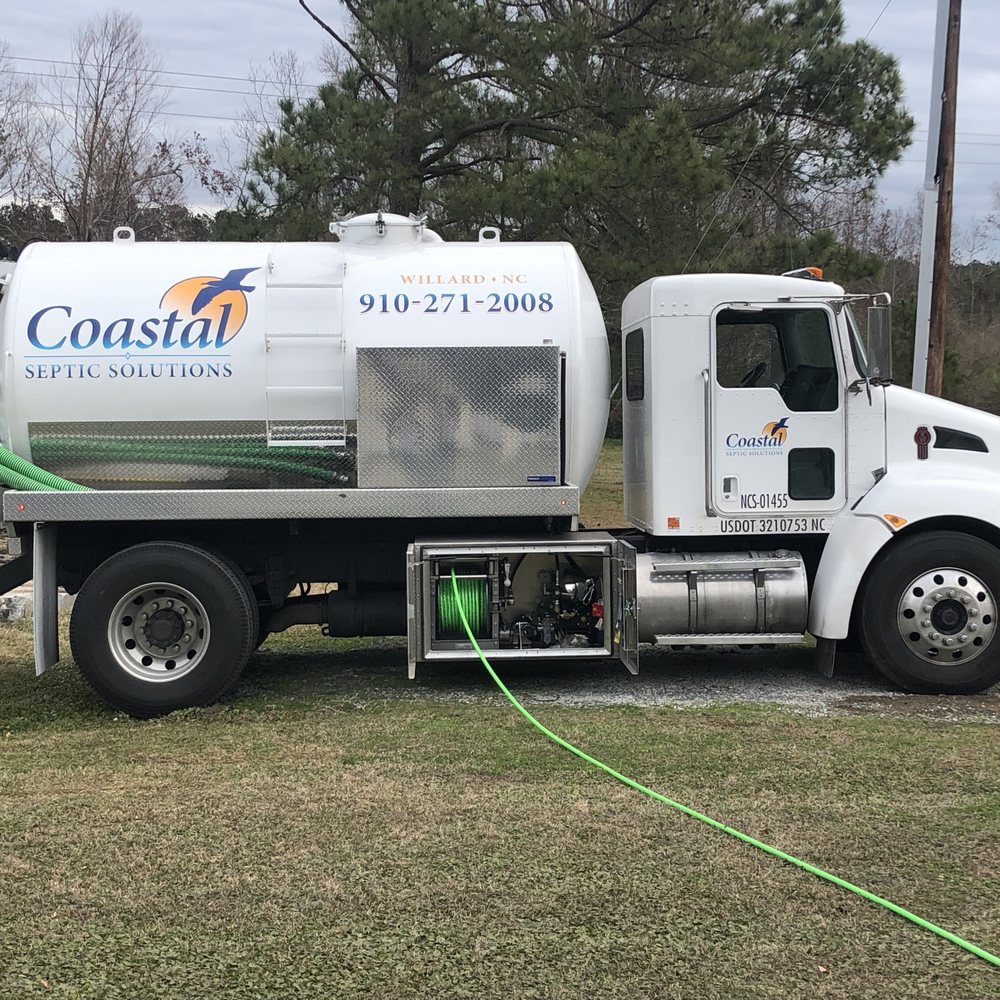When it comes to maintaining your septic tank in Goldsboro, you know it’s important to keep it clean and functioning properly. That’s where “Septic Tank Pumping In Goldsboro” comes in. With their professional and reliable septic tank pumping services, you can rest assured that your septic system will be well taken care of. Whether you need routine pumping or have an emergency situation, their team is ready to assist you. Say goodbye to the stress of septic tank maintenance and trust “Septic Tank Pumping In Goldsboro” to keep your system running smoothly.
How Does a Septic Tank Work?
Basic Components of a Septic Tank
A septic tank is a key component of a septic system, which is a common method of wastewater treatment for homes that are not connected to a centralized sewer system. Understanding how a septic tank works is important for homeowners to maintain the proper functioning of their septic system.
A typical septic tank consists of several basic components. First, there is an inlet pipe that carries wastewater from the house to the tank. This wastewater includes both liquids and solids. Once inside the tank, the solids settle to the bottom, forming a layer of sludge. The lighter liquids, known as effluent, float to the top.
To ensure proper drainage, the septic tank also has an outlet pipe. This pipe is situated near the top of the tank, allowing the effluent to flow out and into the drain field. The drain field is an underground area that further filters and disperses the effluent into the surrounding soil.
Septic Tank Pumping Process
Over time, the sludge layer at the bottom of the septic tank gradually increases. This buildup of solid waste can eventually reach a point where it needs to be pumped out. Septic tank pumping is a necessary maintenance task that ensures the continued functionality of the septic system.
Signs That Your Septic Tank Needs Pumping
Slow Draining Fixtures
One of the first signs that your septic tank may need pumping is slow draining fixtures. If you notice that sinks, toilets, or showers are taking longer than usual to drain, it could be an indication that the septic tank is becoming full. As the sludge layer builds up, it can clog pipes and impede the flow of wastewater.
Foul Odors
Another unmistakable sign that your septic tank is overdue for pumping is the presence of foul odors. A healthy septic tank should not produce any strong or unpleasant smells. If you detect a rotten egg or sewage-like odor around your property, it’s likely that the septic tank is reaching its capacity and needs to be emptied.
Pooling Water
Pooling water in your yard, particularly around the drain field area, can be a clear warning sign that your septic tank requires pumping. When the tank is full, it can no longer effectively disperse the effluent into the drain field. Instead, the excess liquid is forced to rise to the surface, causing pooling water and potentially creating a breeding ground for mosquitoes and other pests.
Sewage Backup
Perhaps the most severe indication that your septic tank needs pumping is sewage backup. If you experience toilets or drains backing up into your home, it’s a major red flag that the tank is at capacity and can no longer handle the incoming wastewater. Sewage backup presents a health hazard, so it’s imperative to address the issue immediately.

Frequency of Septic Tank Pumping
Factors Affecting Pumping Frequency
The frequency at which you should pump your septic tank depends on various factors. The size of the tank, the number of occupants in your home, and the amount of water used all play a role in determining how often pumping is required. Additionally, the ratio of solids to liquids in your wastewater can affect pumping frequency.
Typical Pumping Schedule
On average, septic tanks need to be pumped every 3 to 5 years. However, it’s essential to note that this is just a general guideline. Factors such as household size and water usage can influence the recommended pumping frequency. To ensure an accurate schedule, it’s best to consult with a professional septic tank pumping service that can assess your specific needs.
Importance of Regular Pumping
Prevents System Failure
Regular septic tank pumping is crucial for preventing system failure. When the sludge layer exceeds the tank’s capacity, it can overflow into the drain field and cause clogging or even damage to the entire septic system. By maintaining a regular pumping schedule, you can avoid costly repairs and ensure the longevity of your septic system.
Protects Your Property
Neglecting septic tank maintenance, including regular pumping, can have significant implications for your property. A septic system failure can lead to sewage backups, which can damage your home’s interior and belongings. It can also contaminate your yard, making it unsafe for you, your family, and your pets. By prioritizing regular pumping, you protect your property from potential damage and health hazards.
Maintains Water Quality
A properly functioning septic system plays a vital role in maintaining water quality. When a septic tank is regularly pumped, it allows for appropriate treatment of the wastewater, removing harmful pathogens and pollutants before they reach the groundwater. By diligently maintaining your septic system, you contribute to the overall health and safety of your local environment.

Choosing a Professional Septic Tank Pumping Service
Reputation and Experience
When selecting a professional septic tank pumping service, it’s essential to consider their reputation and experience. Look for companies with a proven track record of providing reliable and high-quality service. Read customer reviews and ask for recommendations from neighbors or friends who have used septic pumping services in the past. An experienced and reputable company is more likely to perform the job effectively and efficiently.
Licensed and Insured
Ensure that the septic tank pumping service you choose is licensed and insured. This is important for your protection in case any damage occurs during the pumping process. Licensed professionals have undergone the necessary training and certification, demonstrating their competence in handling septic systems. Insurance coverage provides added peace of mind should any unexpected issues arise.
Pumping Techniques and Tools
Inquire about the pumping techniques and tools used by the septic tank pumping service. Advanced equipment and methods can ensure a thorough and efficient pumping process. Look for companies that invest in modern technology and practices that promote effective waste removal and minimize environmental impact.
Pricing and Contracts
Obtain detailed pricing information from multiple septic tank pumping services before making a final decision. Compare their rates and ensure that there are no hidden fees or additional charges. Additionally, ask about contracts or agreements, such as maintenance contracts, that may offer long-term benefits. Choose a service that offers fair, transparent pricing and provides clear terms and conditions.
Preparing for Septic Tank Pumping
Locating Your Tank and Access Points
Before the septic tank pumping service arrives, take the time to locate your tank and access points. Mapping out these areas will streamline the process for the service provider. If you are unsure about the location of your tank, refer to your property’s original septic system plans or consult with a professional to help identify the tank’s exact position.
Clearing the Area
To expedite the pumping process and ensure the safety of the service personnel, clear the area around the septic tank and access points. Remove any obstacles, such as rocks, vegetation, or debris that may impede their work. By providing a clear workspace, you facilitate a smooth and efficient pumping operation.
Informing Service Provider
It is crucial to inform the septic tank pumping service about any specific issues or concerns you may have regarding your septic system. Whether you’ve noticed frequent backups or unusual odors, sharing this information with the professionals allows them to better assess the situation and perform any necessary inspections or repairs during the pumping process.

Septic Tank Pumping Process
Inspecting the Tank
Before starting the pumping process, the septic tank pumping service will inspect the tank for any signs of damage or other issues. This inspection includes visually assessing the condition of the tank, checking for leaks, and ensuring that all components are in proper working order. By conducting a thorough inspection, the service provider can identify any potential problems that may require further attention.
Removing Solid Waste
Using specialized equipment, the septic tank pumping service will begin removing the accumulated solid waste from the tank. This process typically involves a vacuum truck that sucks up the sludge, transferring it to a separate container within the truck. The service provider will extract as much of the sludge as possible, ensuring that the tank is properly emptied.
Cleaning the Tank
After the solid waste has been removed, the septic tank requires cleaning. The service provider will wash down the walls and the bottom of the tank to remove any remaining residue or buildup. Thorough cleaning is essential to maintain the tank’s functionality and prevent future issues.
Performing Necessary Repairs
During the pumping process, the septic tank pumping service may identify any necessary repairs or maintenance tasks that need to be addressed. This can include fixing leaks, replacing damaged components, or conducting minor adjustments to ensure optimal performance of the septic system. Discuss any potential repairs with the service provider and authorize the necessary work.
Post-Pumping Maintenance
Avoiding Heavy Water Usage
After your septic tank has been pumped, it is important to avoid heavy water usage for a period of time. Excessive water usage immediately following pumping can overload the septic system and hinder its recovery. It’s advisable to space out water-intensive activities, such as laundry or running the dishwasher, over several days to allow the system to regain its balance.
Proper Disposal Practices
To maintain the health of your septic system and extend its lifespan, practice proper disposal practices. Never dispose of non-biodegradable items, such as wipes, feminine hygiene products, or cooking grease, down the drains or toilets. These materials can contribute to clogs and disrupt the natural breakdown of waste within the septic tank. Opt for environmentally-friendly cleaning products and educate household members on proper waste disposal habits.
Regular Inspections
To ensure the ongoing functionality of your septic system, schedule regular inspections with a professional service provider. These inspections should include a comprehensive assessment of the tank, drain field, and associated components. Regular inspections enable early detection of any potential issues and allow for prompt maintenance or repairs, thereby avoiding costly consequences down the line.

Common Mistakes to Avoid
Using Chemical Additives
While chemical additives marketed as septic tank cleaners are widely available, they are generally unnecessary and can do more harm than good. Septic systems are designed to naturally break down waste, and introducing foreign chemicals can disrupt this delicate balance. Stick to regular pumping and maintenance routines, rather than relying on questionable chemical products.
Neglecting Maintenance
Neglecting routine maintenance is a common mistake that can have severe consequences for your septic system. Regular pumping, inspections, and proper disposal practices are vital for its proper functioning. By ignoring these maintenance tasks, you risk system failure, property damage, and potential health hazards for you and your family.
Ignoring Warning Signs
Ignoring warning signs that indicate your septic tank needs pumping can lead to major problems. Slow draining fixtures, foul odors, pooling water, and sewage backup are all signs that should not be ignored. Addressing these issues promptly by scheduling a septic tank pumping service can prevent costly repairs and protect your property and the environment.
Conclusion
Understanding how a septic tank works and the importance of regular pumping is essential for maintaining the durability and functionality of your septic system. By recognizing the signs that your septic tank needs pumping, adhering to a suitable pumping schedule, and selecting a professional service provider, you can protect your property and ensure the long-term operation of your septic system. Remember to follow proper maintenance practices, avoid common mistakes, and seek professional assistance when needed. With proper care, your septic system will continue to serve you well for years to come.

